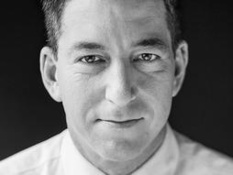
urbansheep@gmail.com
★ Гринвальд про азбучные истины о личных секретах и о праве на непрозрачность, когда ты этого не хочешь: Glenn Greenwald: Why privacy matters | Talk Video | TED.com - http://www.ted.com/talks...

|
19 января 2015 в 13:34 с Bookmarklet
луну придётся засолить
eugenio
Дима
my bears are augmented
the sea of doors
in a most peculiar way
rogneda
smallq
ftt
THE END
голос в темноте
эш
when the music's over
Ru Ok
Зверёк, это отличный тед-ток про прайваси и её значение для общества и отдельных людей, в нём Гринвальд озвучивает то, чем приходится жертвовать людям, которые оказываются в мире постоянного принудительного наблюдения. — “Glenn Greenwald was one of the first reporters to see — and write about — the Edward Snowden files, with their revelations about the United States' extensive surveillance of private citizens. In this searing talk, Greenwald makes the case for why you need to care about privacy, even if you’re “not doing anything you need to hide.” • #прозрачное_общество - urbansheep@gmail.com
О разном понимании хорошего и плохого у простых коротышек и у непростых: “The last point I want to observe about this mindset, the idea that only people who are doing something wrong have things to hide and therefore reasons to care about privacy, is that it entrenches two very destructive messages, two destructive lessons, the first of which is that the only people who care about privacy, the only people who will seek out privacy, are by definition bad people. This is a conclusion that we should have all kinds of reasons for avoiding, the most important of which is that when you say, "somebody who is doing bad things," you probably mean things like plotting a terrorist attack or engaging in violent criminality, a much narrower conception of what people who wield power mean when they say, "doing bad things." For them, "doing bad things" typically means doing something that poses meaningful challenges to the exercise of our own power.” - urbansheep@gmail.com
О том, как возникает выученная беспомощность в мире паноптикона: “The other really destructive and, I think, even more insidious lesson that comes from accepting this mindset is there's an implicit bargain that people who accept this mindset have accepted, and that bargain is this: If you're willing to render yourself sufficiently harmless, sufficiently unthreatening to those who wield political power, then and only then can you be free of the dangers of surveillance. It's only those who are dissidents, who challenge power, who have something to worry about. There are all kinds of reasons why we should want to avoid that lesson as well. You may be a person who, right now, doesn't want to engage in that behavior, but at some point in the future you might. Even if you're somebody who decides that you never want to, the fact that there are other people who are willing to and able to resist and be adversarial to those in power — dissidents and journalists and activists and a whole range of others — is something that brings us all collective good that we should want to preserve. Equally critical is that the measure of how free a society is is not how it treats its good, obedient, compliant citizens, but how it treats its dissidents and those who resist orthodoxy. But the most important reason is that a system of mass surveillance suppresses our own freedom in all sorts of ways. It renders off-limits all kinds of behavioral choices without our even knowing that it's happened. The renowned socialist activist Rosa Luxemburg once said, "He who does not move does not notice his chains." We can try and render the chains of mass surveillance invisible or undetectable, but the constraints that it imposes on us do not become any less potent.” - urbansheep@gmail.com
© 2015 FriendFeed (and Clio archiver)